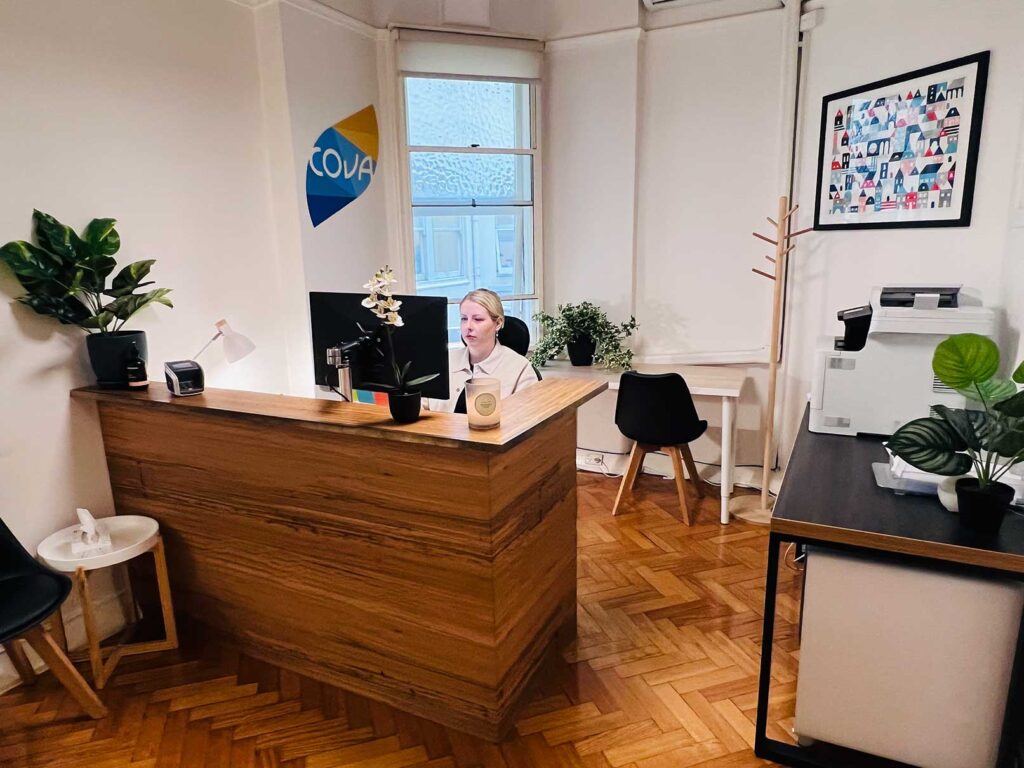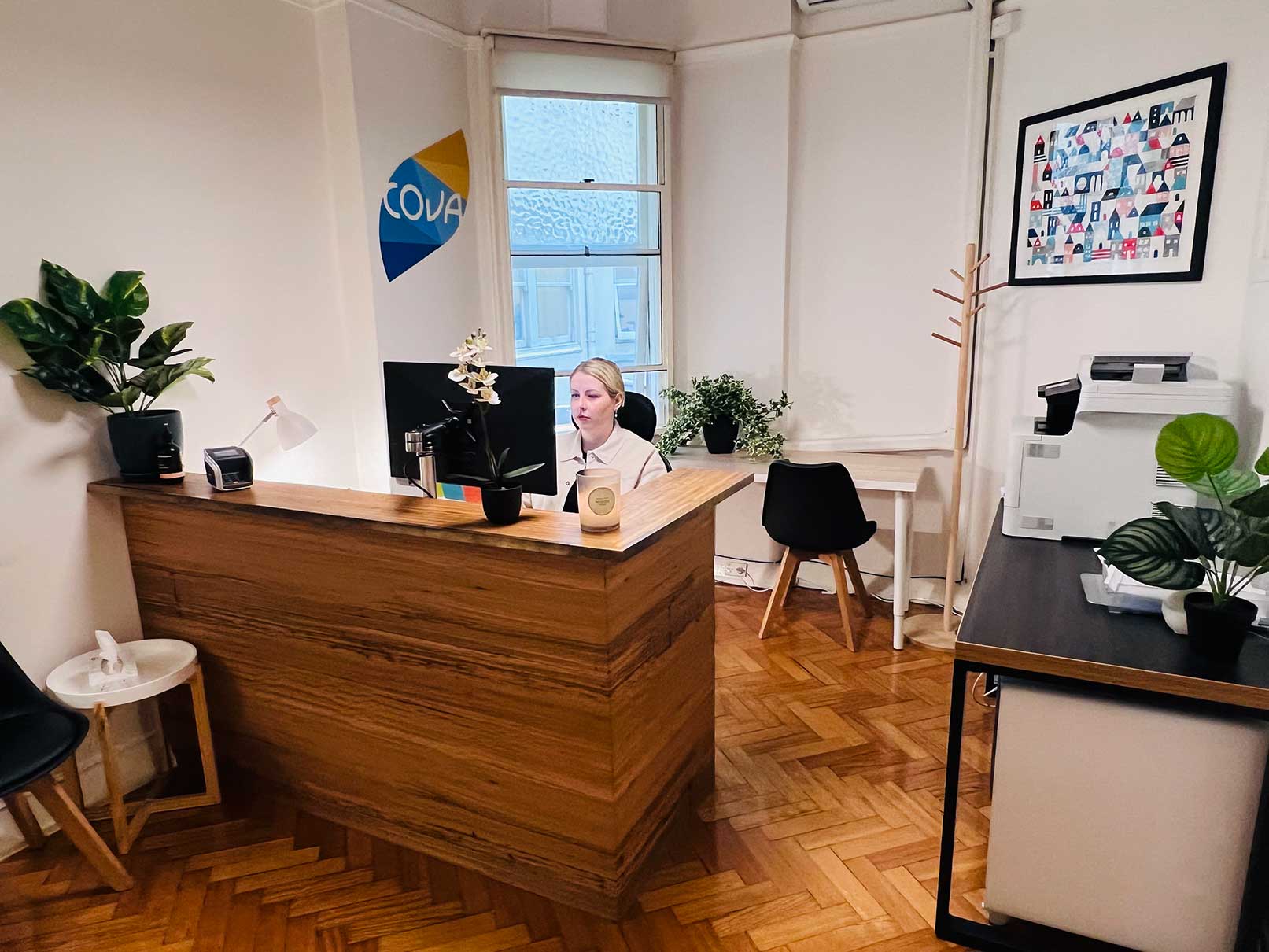Reaching out for support and setting up effective treatment is an important component of managing and recovering from depression.
Figuring out where to start can be a challenge when we are feeling flat, and so this article has been prepared to provide you with easy to understand information regarding which psychological treatments are available, as well as helpful lifestyle adjustments and support strategies.
Discover how to tackle depression head-on, with clear, evidence-based guidance to support your recovery journey.
Key Takeaways
Depression is a serious mood disorder with varied symptoms such as persistent sadness, anxiety, fatigue, and loss of interest in daily activities, requiring a tailored diagnosis and understanding for individualised treatment.
Effective treatment of depression involves personalised plans, various psychological therapies, lifestyle changes, and setting realistic goals, all supported by building a strong support network and developing effective coping skills.
Professional help is essential in treating depression, which may include therapies like cognitive behavioural therapy and mindfulness. For some people, medication may be a helpful component and this can be explored with your doctor.
@covapsychology Depression is not the same as sadness. Clinical psychologist Chris explains the difference and lists the clinical signs of depression, encouraging you to get help and support if you feel you might be experiencing depression. #depressionanxiety #depressionawareness #mentalillness #mentalhealth #mentalhealthtiktoks #mentalhealthmatters #mentalhealthtiktok ♬ original sound - Cova Psychology | Psychologist
@covapsychology Depression is not the same as sadness. Clinical psychologist Chris explains the difference and lists the clinical signs of depression, encouraging you to get help and support if you feel you might be experiencing depression. #depressionanxiety #depressionawareness #mentalillness #mentalhealth #mentalhealthtiktoks #mentalhealthmatters #mentalhealthtiktok ♬ original sound - Cova Psychology | Psychologist
Reaching out for support and setting up effective treatment is an important component of managing and recovering from depression. Figuring out where to start can be a challenge when we are feeling flat, and so this article has been prepared to provide you with easy to understand information regarding which psychological treatments are available, as well as helpful lifestyle adjustments and support strategies. Discover how to tackle depression head-on, with clear, evidence-based guidance to support your recovery journey.
Key Takeaways
Depression is a serious mood disorder with varied symptoms such as persistent sadness, anxiety, fatigue, and loss of interest in daily activities, requiring a tailored diagnosis and understanding for individualised treatment.
Effective treatment of depression involves personalised plans, various psychological therapies, lifestyle changes, and setting realistic goals, all supported by building a strong support network and developing effective coping skills.
Professional help is essential in treating depression, which may include therapies like cognitive behavioural therapy and mindfulness. For some people, medication may be a helpful component and this can be explored with your doctor.
Table of Contents
Understanding Depression and Its Impact
Depression is more than just a temporary bout of the blues—it represents a significant mood disorder that can profoundly disrupt an individual’s daily life. This is because symptoms of depression can present debilitating emotional and physical challenges that can worsen without the right supports and treatment in place. Depression symptoms can include ongoing sadness or anxiety, fatigue and a diminished interest in everyday activities—all of which can significantly impede regular functioning. In cases of more severe depression, one can experience feelings of worthlessness and suicidal thoughts.
Diagnosing depression is not straightforward as it varies from person to person. For example, identifying major depression typically necessitates observing symptoms according to established medical criteria, such as depressed mood for no less than two weeks duration. If you think you might be experiencing depression, it’s important to talk to a doctor or mental health professional to explore diagnosis and treatment.
Recognising Depression: A closer look
Depression manifests in numerous forms, affecting emotions as well as actions and cognitive functioning. Typical signs of depression consist of:
Low mood and motivation
Continuous sadness
Not deriving any sense of pleasure from activities you usually enjoy
Fatigue
Disruption in sleep patterns. Either over sleeping or being unable to sleep.
Little to no appetite, or urges to eat in order to cope
Ignoring daily tasks
Urges to hurt oneself
Feelings of worthlessness and/or guilt
The burden from these symptoms is often profound.
Clinically speaking, clinical depression is a type of mental illness that can obscure clarity in thinking and decision-making abilities. It may alter your social interactions significantly, causing you to pull back from community involvement or experience difficulties in personal connections. Identifying these indications is vital for pursuing appropriate treatment for depression.
Tailoring Your Treatment Plan

Treating depression effectively requires a tailored approach as each individual’s response to treatment varies. To enhance the success rates of managing depression, it is essential for treatment strategies to be customised to cater to specific requirements and paths toward healing, focusing on overall life improvement beyond merely diminishing depressive symptoms.
At its core, personalisation in treating depression involves aligning unique traits with suitable therapeutic options in order to optimise the management of depressive symptoms and promote effective recovery.
Engaging in Psychological Therapy
In the context of treating depression, psychological treatments are crucial. Evidence from over 700 randomised controlled trials and more than 80 meta-analyses supports their use in this capacity. Methods like cognitive behavioural therapy (CBT), behavioural activation therapy, and interpersonal psychotherapy have been demonstrated to be effective methods for addressing depression – all of these interventions have been shown to be as effective as each other!
CBT is among those that can be successfully administered through various approaches including one-on-one sessions, group settings, or guided self-help programs—ensuring a wide range of people can access CBT treatments.
A number of other psychological therapies have been evidenced as effective treatments of depression, including:
Mindfulness based interventions
Acceptance and Commitment Therapy (ACT)
Schema Therapy
Compassion based therapy
Internal Family Systems (IFS)
These therapies can be provided by a therapist or psychologist. You can find a psychologist online or your doctor can provide you with some suggestions. With a GP referral, you can access Medicare rebates to see a psychologist at a reduced rate.
The Role of Lifestyle Modifications
In addition to therapeutic interventions, changes in lifestyle play a vital supportive role. Often therapies such as CBT and Interpersonal Psychotherapy will help you to identify and establish lifestyle changes which will help support your depression treatment.
Increasing your physical activity has been demonstrated by research to be an important part of treatment. Engaging in regular physical activity has been shown to markedly diminish stress levels, elevate mood, increase self-esteem and promote sound sleep.
Adhering to consistent sleeping habits—such as setting fixed times for going to bed and waking up—and participating in calming activities before bedtime can enhance mental wellbeing and address fatigue linked with depression. When our brain is under-nourished, our mood and energy levels can lower significantly. As such, ensuring that you are adhering to a healthy diet by eating regular balanced meals can also assist with stabilising mood.
Strategies for Overcoming Depression
As part of addressing depression, a range of coping skills and strategies can be beneficial. These skills can improve depression symptoms, our day to day functioning and elevate our quality of life.
Key strategies to tackle depression include:
Confronting anxieties and participating in activities that challenge you
Committing to engaging in certain activities each day in order to self-care (these might be agreed on by you and your therapist)
Reinforcing and recognising every small step you take to challenge yourself or reach out for support
Exploring how to manage negative thinking patterns (often in conjunction with your therapist) and adhering to these. These skills might be involve cognitive challenging, where you change negative thoughts into a more helpful belief, or letting negative thoughts go using mindfulness.
Maintaining close ties with loved ones
Moderating consumption of alcohol
Seeking out activities that bring pleasure
Employing each strategy can be important for effectively managing the symptoms of depression.
Setting Realistic Goals
Starting with modest, attainable goals, such as a short walk around the neighbourhood, can catalyse progress and foster feelings of achievement. Utilising the SMART goal-setting criteria can enhance focus and guidance by ensuring that goals are specific, measurable, achievable, relevant, and time-bound.
Goal-setting enables us to track our growth and help in maintaining motivation. Additionally, when aspirations are shared within a support network, it provides not only moral reinforcement but also adds an element of responsibility to fulfill those aims. It’s important to exercise self-kindness as you work towards your goals.
Building a Support Network
Navigating through depression often requires a strong support system that can provide various kinds of emotional aid, bolstering our resilience and ability to cope with challenges. This vital network might comprise friends, relatives, and community groups.
Being involved in local activities or connecting with online communities can cultivate meaningful relationships and help build a sense of inclusion that is beneficial for mental health. Here are some actions you could take to enhance connection to others and/or community involvement:
Signing up with neighbourhood clubs or associations
Taking part in local gatherings or offering volunteer services
Going to group therapy sessions focused on strategies and support
Becoming active on virtual platforms like social media spaces
Acquiring a pet which could offer comfort as well as companionship
Support circles specifically designed for those experiencing depression—and even the company offered by pets—can provide crucial emotional backing while reducing feelings of seclusion.
Engaging in Hobbies and Interests as a Set of Coping Skills
Hobbies, interests, and pleasurable activities become important coping skills in the treatment of depression. Some examples of calming activities and mindful exercises that can improve your mental state and are beneficial for people with depression include:
Mindfulness meditation
Watching movies
Reading
Engaging in hobbies
Listening to music
Writing in a journal
Exercising
Cooking
Catching up with friends and family
You might explore which activities you will undertake with a psychologist and agree on how to include these in your schedule. Conversations with doctors or therapists about coping skills can lead to improved strategies for managing depression.
Personalising your routine to fit your needs is key, starting with small changes, permitting flexibility and adjustment, while avoiding self-judgment if your routine doesn’t always go to plan. Journaling or keeping a mood diary can help with tracking experiences and emotional patterns as these changes are made.
Maintaining a balanced schedule eases stress, prevents burnout, and is crucial for maintaining a healthy balance, which can aid in managing depression.


Cultivating Mental Resilience
Building mental resilience can be an important component of depression treatment. Tactics for enhancing resilience include throughout treatment and recovery from depressive disorders include:
Practicing mindfulness meditation, which can improve both mental and physical health through beneficial changes to the brain and body.
For some people, activities that engage both mind and body in a relaxing and calming way can be beneficial. For example, some options include yoga, pilates, tai chi, and acupuncture.
Actively seeking out effective treatments tailored to address symptoms of depression.
Taking steps to prevent a relapse by having a plan in place to sustain day to day resilience which involves exercise, healthy diet, sleep hygiene, and pleasurable activities.
The technique of progressive muscle relaxation is particularly useful for mitigating stress. This involves systematically tensing then relaxing various muscle groups, leading not only to improved sleep but also reduced blood pressure and diminished psychological stress reactions. Coupled with other strategies like deep breathing exercises as well as engaging consistently in self-care practices—such as maintaining regular exercise routines — and incorporating relaxation methods including yoga, these tactics are instrumental in relieving anxiety and symptoms associated with depression.
Interventions based on mindfulness principles are readily available online or through mobile applications. These tools offer individuals easy access to resources that promote the betterment of their mental health while building emotional and mental strength.
Redefining Daily Life with Depression
Structure and routine can be vital components of depression treatment. Creating a consistent daily routine can markedly reduce stress levels and increase your capacity to handle life’s uncertainties, which is especially advantageous for coping with depression.
Adopting and adhering to a regular schedule that includes fixed times for sleeping and eating serves as an effective strategy in mood stabilisation and enhancing one’s general wellness. The establishment of a stable daily structure offers feelings of control and predictability, both of which are supportive when navigating the day-to-day hurdles presented by depression.
Navigating Professional Help
It is vital to consult with a mental health professional when dealing with depression, even though there are numerous self-help approaches and lifestyle changes that can be made.
Psychologists can offer talking therapies and counselling such as cognitive behavioural therapy, whilst doctors can prescribe medications like antidepressants.
A good starting place is to book in with your general practitioner, because they can explore different treatment options with you. If you’d prefer not to commence medication treatment, your doctor will still be able to refer you to a psychologist. With a GP referral you will be able to claim Medicare rebates for psychology sessions which will make the treatment more affordable.
Recognising the Need for Help
Reaching out for professional assistance is an important step in the recovery process. It is never to early to ask for support and explore interventions which could be helpful. In fact, generally the earlier you are able to seek help, the better.
It is vital to get in touch with a healthcare provider or obtain urgent care when experiencing suicidal thoughts. Many people feel that they are able to deal with their feelings on their own using self-help; however, this may not provide the adequate tools for dealing with depression. It may be more beneficial to incorporate self-help strategies alongside professional guidance.
Collaborating with Health Professionals
The journey towards managing depression effectively is a collaborative one, where clients work hand in hand with healthcare experts.
Clients take an active role in their own therapeutic process by making informed choices about available treatment options and engaging with therapeutic approaches that best suit their needs. Regular check-ins allow for adjustments to treatments based on your feedback.
Alternative Approaches to Depression Treatment
In the management of depression, some individuals find that supplementary methods contribute to alleviating their symptoms. Acupuncture is one such practice where fine needles are strategically placed in certain areas of the body with the intent to correct disturbances in energy flow, and has been found to be beneficial for mental health conditions including depression.
Techniques that engage both mind and body are recognised within integrative medicine strategies for their potential benefits in reducing symptoms of depression and addressing other related symptoms effectively.
The Power of Self-Help in Treating Depression
Self-help can play a significant role in managing depression. Keeping a journal serves as an effective tool for conveying feelings, contributing to the regulation of stress and anxiety that often accompany depressive symptoms. Through consistent journaling one can:
Clarify personal issues
Monitor signs of depression
Identify triggering events
Detect patterns of negative thoughts and actions
Summary
In taking steps to treat depression, it is important to recognise that you are in the company of others who understand and can help. Identifying various forms and symptoms associated with depression is critical while customising a treatment strategy designed for your needs. Establishing a network of support, formulating attainable goals, and nurturing psychological strength play essential roles on the path to recovery.
Medication can play an important role in treatment for some people and should be explored with the input of your doctor.
Evidence-based psychological treatments include Cognitive Behaviour Therapy (CBT), Mindfulness, Acceptance and Commitment Therapy (ACT), Schema Therapy, Dialectical Behaviour Therapy (DBT), and Internal Family Systems. These can be provided by a therapist or psychologist. You can find a psychologist online and/or ask your doctor for a referral to see one.
Frequently Asked Questions
What helps people cope with depression?
In managing depression, maintaining communication with people, engaging in physical exercise, confronting anxieties, reducing alcohol consumption, adhering to a nutritious diet and setting up a consistent schedule are vital steps.
Adopting these approaches can assist those struggling with depression in more effectively controlling their symptoms and enhancing their general wellness.
What are the major causes of depression?
There are several primary contributors to depression such as hereditary influences, chemical imbalances in the brain, individual personality traits, and experiences of stress or trauma.
Recognising these key factors is essential for obtaining the necessary help and intervention.
How do therapists diagnose depression?
Through a psychological assessment that encompasses interviews and various evaluations of mood, thoughts, and actions, therapists are able to pinpoint indications of depression.
Such an approach enables them to effectively gauge the mental health condition of a person.
What are some symptoms of depression?
Should you be encountering ongoing feelings of sadness, a significant drop in energy levels, heightened anxiety, noticeably slower physical movements or speech patterns, and a diminished interest in everyday tasks, these could be indicative of symptoms associated with depression. It is important to consult with healthcare professionals to obtain an accurate diagnosis and appropriate care.















